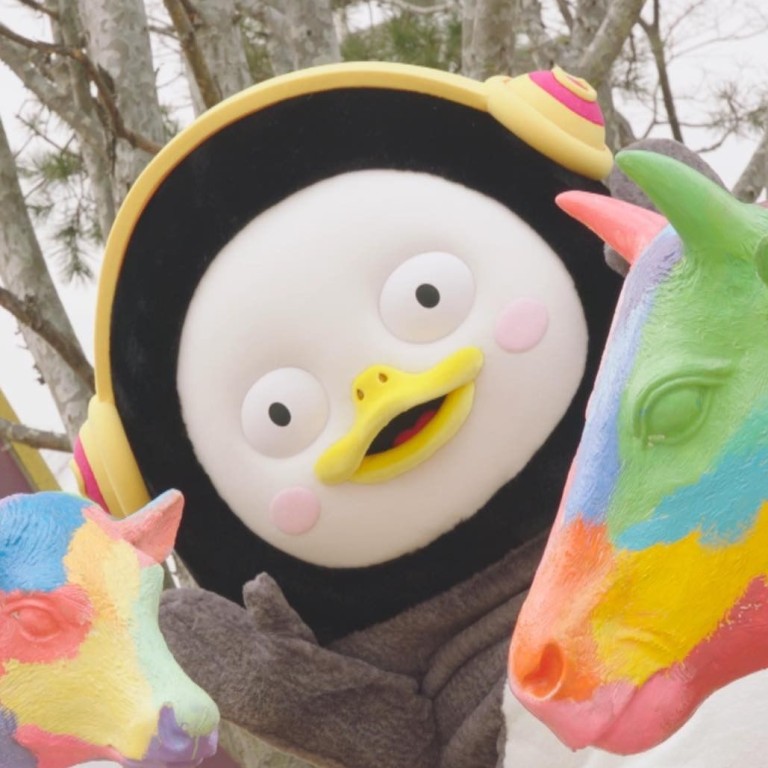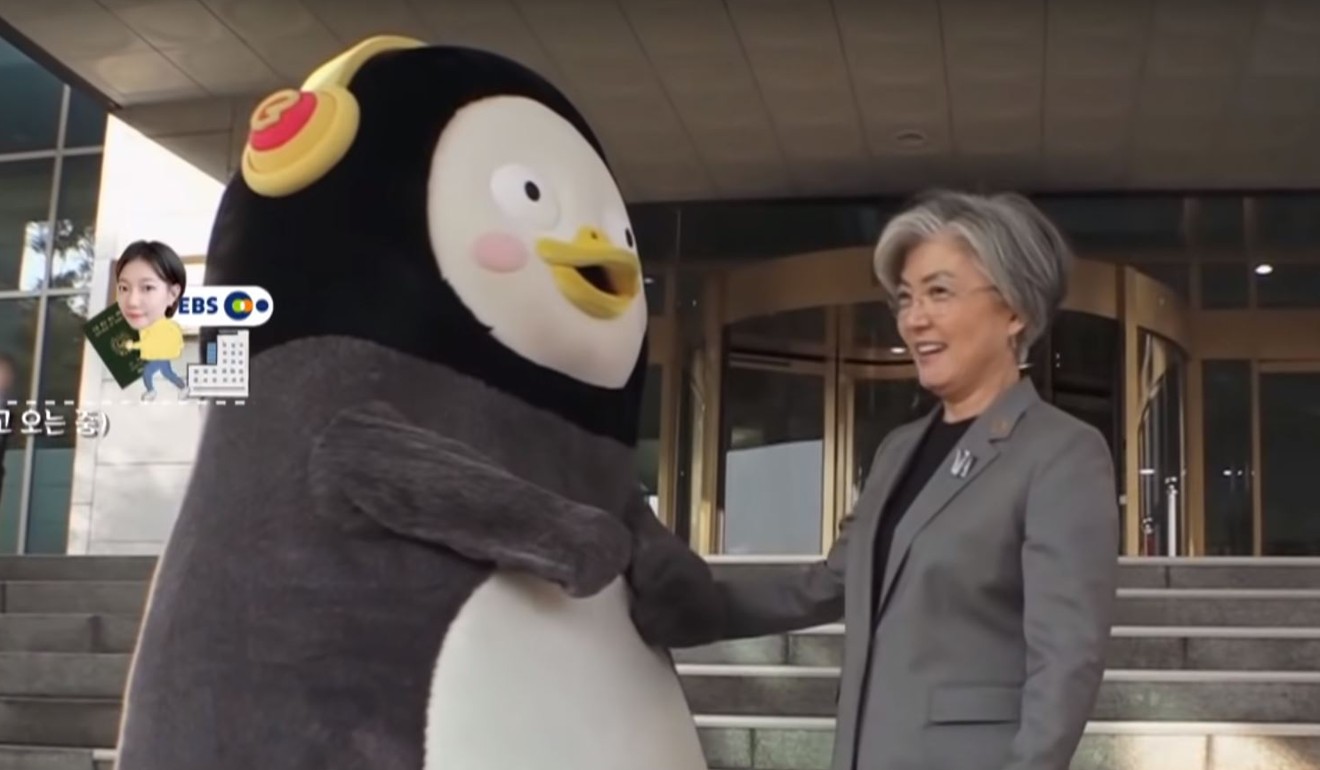
Bigger than BTS? Why South Korea’s millennials fell for Pengsoo the giant penguin
- With its unexpectedly husky voice and taboo-breaking behaviour, Pengsoo seems to have struck a chord with a generation of disaffected young Koreans
- The children’s character for more mature audiences shot to stardom on the back of ‘off-the-wall’ TV appearances and its own YouTube channel
Pengsoo, a 2.1 metre-tall penguin with an expressionless face and blank, staring eyes was named “Person of the Year” – despite not actually being a person. It beat popular stars like BTS in a poll of 2,333 adults conducted by Korean recruitment website Incruit at the end of November.

According to South Korea’s Educational Broadcasting System – which created Pengsoo and another penguin character named Pororo – the giant penguin from the South Pole wants to become a global star like BTS.
In numerous episodes of its show, it shuns the use of honorifics when addressing others, attacks social norms such as the concept of a nuclear family, and brags about being a celebrity and superstar – all of which is almost unheard of in socially conservative South Korea.

Yoon Go-eun*, for instance, found Pengsoo’s face off-putting when the character was first launched in March. But by October, the 28-year-old office worker had been convinced to check out its YouTube channel.
“Everyone else around me was watching, and since I started I haven’t stopped,” she said.
Pengsoo’s desire to become bigger than BTS also mirrors the dreams many young Koreans have of K-pop stardom, making the character seem “realistic like the rest of us”, Yoon said, adding that the penguin’s disdain for social conventions offers relief from “some of the stresses of being in a strict hierarchical system at work”.
Thousands of other young adults seem to agree. They regularly tune in to Pengsoo’s shows, while emojis featuring the giant penguin have become commonplace on KakaoTalk, the most popular messaging app among Korean teens and those in their 20s and 30s.
On internet forum DC Inside, Pengsoo placed first – receiving 18.6 per cent of the vote – in a recent poll that also included K-pop heavyweights BTS and popular television personality Yoo Jae-suk.
Many of the 10,471 forum users who voted for Pengsoo did so because of its “off-the-wall’ personality and “feisty” tendencies, according to their survey answers.
Jang Se-yeon*, a 20-year-old university student in Seoul, said she fell in love with the character because of its unexpectedly deep voice and face that – though seemingly devoid of expression – “can express like a hundred different expressions so it looks mad at times and cute at other times”.
While for 31-year-old office worker Park Gwang-hyun, Pengsoo’s relatableness is what makes its so watchable.
“It seems like the penguin is going through struggles of its own just like anyone else in society,” he said. “It also seems to be greedy like the rest of us in many ways, always trying to increase its fame.”
Pengsoo’s popularity among viewers in their 20s and 30s also gives it a potential customer base with greater purchasing power than characters aimed more at children, according to Ha In-whan, an analyst at Seoul-based Meritz Securities.
This could explain why South Korean online content firm Uangel saw its share price increase by more than 50 per cent last month after it signed an agreement to promote EBS content through its platform. Yes 24, an online bookseller, also saw its share price jump after it started giving out Pengsoo souvenirs to customers who bought books published by EBS.
The character could be the next big South Korean cultural export to go global, according to the Korea Institute for Industrial Economics and Trade, which noted the potential of Pengsoo-related content in its latest report.
*Names have been changed

